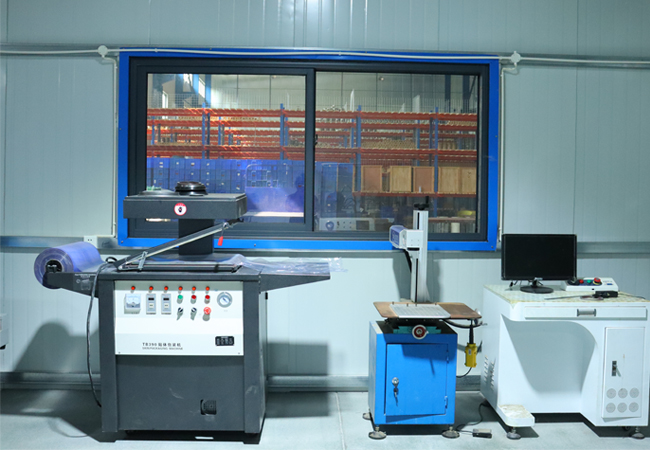9 月 . 30, 2024 04:45 Back to list
High Temperature Oil Seal Solutions for Enhanced Performance and Longevity in Industrial Applications
High Temperature Oil Seals Essential Components for Engine Efficiency
In the realm of mechanical engineering and automotive design, the efficiency and longevity of components are paramount. One of the unsung heroes in this pursuit of durability and performance is the high temperature oil seal. These specialized seals play a critical role in ensuring that engines and machinery operate smoothly under extreme conditions, thus maintaining the integrity of various systems.
Understanding High Temperature Oil Seals
High temperature oil seals are specifically designed to contain lubricants and prevent contamination from external elements. They operate in environments where temperature can rise significantly, often exceeding traditional seal limits. In engines, for example, operating temperatures can reach upwards of 300°C (572°F) during peak performance conditions.
The primary function of these seals is to prevent oil leakage while ensuring that dirt, dust, and moisture do not enter the lubrication system. A compromised seal can lead to a loss of lubrication, resulting in increased friction, overheating, and ultimately, engine failure. Therefore, selecting the right oil seal material and design is crucial for maintaining operational efficiency.
Materials Used in High Temperature Oil Seals
The materials used for high temperature oil seals are specifically engineered to withstand extreme thermal and mechanical stresses. Common materials include fluorocarbon elastomers (FKM), silicone rubber, and polyacrylate compounds. These materials exhibit excellent thermal stability, resistance to oil degradation, and elasticity, allowing them to perform effectively even at elevated temperatures.
1. Fluorocarbon Elastomers (FKM) Known for their excellent thermal resistance and chemical stability, FKM seals can endure high temperatures while resisting many aggressive fluids. They are ideal for automotive and industrial applications where exposure to various lubricants is commonplace.
high temp oil seal

2. Silicone Rubber This material is favored for its temperature flexibility, often remaining functional in a temperature range from -50°C to 200°C (-58°F to 392°F). Silicone seals are particularly useful in environments where the seal may expand or contract due to temperature fluctuations.
3. Polyacrylate Compounds These provide good resistance to high temperatures and oils, making them suitable for various applications where traditional rubber may fail. Their resilience under stress makes them a popular choice in heavily loaded environments.
Applications of High Temperature Oil Seals
High temperature oil seals find their application in numerous industries, including automotive, aerospace, and manufacturing. In the automotive sector, they are commonly used in engines, gearboxes, and transmission systems. These seals’ ability to withstand heat ensures that vehicles operate efficiently, providing optimal performance and reduced risk of component failure.
In aerospace, the rigorous thermal cycles endured by aircraft components necessitate the use of high temperature oil seals that can handle extreme conditions while maintaining performance integrity. Industrial machinery also benefits from these seals, particularly in areas where lubrication systems are crucial for reducing wear and tear on heavy-duty equipment.
Conclusion
The significance of high temperature oil seals cannot be overstated. They are essential for maintaining the efficiency and reliability of mechanical systems that operate under challenging conditions. The evolution of materials science has led to the development of seals that can withstand extreme temperatures and harsh chemicals, thereby ensuring better performance and longevity of machinery.
As technology advances and the demand for high-efficiency systems grows, the importance of these seals will only increase. Engineers and designers must prioritize the selection of appropriate high temperature oil seals to safeguard their projects from potential failures due to lubrication loss or contamination. Investing in high-quality oil seals is not merely a choice; it is a necessity for any operation that values efficiency, performance, and reliability in the face of heat and pressure. By doing so, industries can ensure that their machinery operates at peak performance, leading to safer, more reliable, and more efficient systems overall.
-
The Power of Advanced Sealing: High-Pressure Solutions for Modern Machinery
NewsOct.29,2024
-
Optimizing Machinery with High-Performance Oil Seals
NewsOct.29,2024
-
Maximizing Machinery Efficiency with Advanced Oil Seals
NewsOct.29,2024
-
Ensuring Equipment Longevity with Quality Oil Seals
NewsOct.29,2024
-
Enhance Equipment Performance with Quality Oil Seals
NewsOct.29,2024
-
Custom Oil Seals for Specialized Machinery Needs
NewsOct.29,2024
-
The Role of Wiper Seals in Dust Sealing and Oil Protection
NewsOct.20,2024
Products categories
















